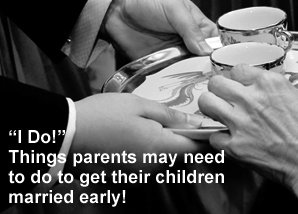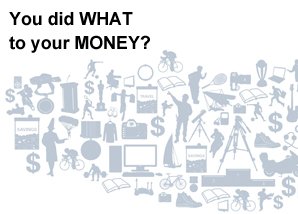Lessons from the Millennials
What this upcoming generation can
teach us about life & money
Much has been said about the Millennials, the generation born between the years 1982 – 2000. They are often labeled lazy, narcissistic and all about “Me, Me, Me”!
They are referred to as the “Boomerang Generation” due to their inability or unwillingness to leave their parent’s home. Or worst, they are called the Peter Pan Generation for refusing to grow up.1
It may be easy to pinpoint the negative qualities of this upcoming generation but there are also redeeming qualities that we can learn from the Millennials, no matter our age group. Let’s dig deeper into the generation that has begun to flood the workplace and will be the imminent shapers of the future.
They take to technology like ducks to water.
Technology is almost second nature to Millennials. They were born when the Internet was already webbing the world. This is one advantage that the less-tech-savvy generations can benefit the most from the Millennials. They can share their knowledge with others on how to maximize the use of technology to keep in touch, get their banking done, research for information and much more.2
They don’t separate work and life.
Because they are so connected – checking their emails, messaging their colleagues – they are always on. It’s not about work-life balance anymore. It’s about integration. Non-Millennials can perhaps take on the motto of “You Only Live Once” (#YOLO) and learn to enjoy living a more integrated life, melding work and play, family and career.3
They want to live their passions.
Millennials are not in a job just for the money. They want to do work that they feel fulfilled in and makes them happy. They want to live their passions and their dreams, right now, not when they retire.2
They absorb knowledge quickly.
Millennials have information at their fingertips. They are used to scanning pages for information and learning quickly. One too can develop the skill of learning and adapting quickly so one can do many different things.2
They are open-minded about the future.
Millennials are open about the future and how they may shape it. Not having a preconceived idea of what the future should look like may allow us to discover exciting opportunities that come our way.2
They care about their world.
Give them a worthwhile cause and if it resonates with them, Millennials may sit up and take action. They are often passionate about charitable causes, sustainable living and taking care of Mother Nature. They often share their beliefs and garner support for causes they believe in through social media, leading to movements and calls for change.2
They value experiences over things.
Millennials are spending more than any past generation on travel and eating out. Older folks may think that is wasteful but there’s more to that. Millennials recognize the value of forming interpersonal relationships, besides their online friends, and creating lasting memories. Of course they will Instagram the experience and share it on Facebook but that’s all part of the way Millennials create memories.3
They don’t draw a line between doing good and doing well.
They believe that they can do well and do good at the same time. They want to support businesses that believe in making profit and giving back to society.3
Millennials are spending more than any past generation on travel and eating out.
What about money matters?
Research shows that Millennials do not lag behind when it comes to handling their personal finance. According to BlackRock’s 2014 Global Investor Pulse Survey, 56% of Millennials regularly monitor their investments, spending almost 7 hours a month reviewing the numbers. Baby Boomers (a person who was born between 1946 and 1964)4 on the other hand, spend about 46% of their time, a mere 2 hours a month, on their investments.5
Money discussions are not off-limit to Millennials.
They are more open to discussing personal finances and investment opportunities with each other in public.3 While older folks may hesitate to share their finances like the Millennials, emulating their openness is a positive step, especially when sharing financial issues with qualified financial consultants and reviewing their portfolios with HSBC’s Relationship Manager.
Millennials have non-traditional notions of retirement.
Golfing and whiling away their retirement days at the beach isn’t necessarily an ideal for Millennials. As their notion of work is different (they want a calling, not a job), they do expect to work for a long time.
They also do not expect the government [pensions, Employee Provident Fund (EPF)] to take care of their retirement. So in that way, they do take control of their future. They save as much as they can and have realistic notions about how their retirements may be funded.3 In fact, 57% of them felt “in control” of their financial future, versus 41% of Baby Boomers.5
Millennials are more hands on in assimilating financial information.
They may appreciate their parents’ advice but they have a need to research and learn on their own from the Internet and their peers.6 Take a leaf out of the Millennial’s financial playbook and dedicate some time to invest in your financial education. There is a plethora of personal finance blogs, websites, books, podcasts and online tools that can make it fun and easy to brush up on your financial knowledge.
Millennials spend on worthy splurges.
Millennials may “trade up, trade down” on their purchases – meaning they may choose to shop at a hypermarket for bread and a designer store for more upscale goods. Millennials also do a lot of shopping online to enjoy discounts and peer recommendations. However, if they find an item they really like, they are willing to splurge.1
Millennials are dedicating a higher percentage of their income to saving and investments.
The Millennials surveyed in BlackRock’s survey said that they devote an average of 22% of their take-home pay to savings and 18% to investing. Boomers dedicate 12% and 11%, respectively.5 Perhaps it is time to relook at your investments and up your percentages?
Millennials have an eye on multiple income streams.
Millennials may have a full-time job and side income from other sources such as their blogs, a part-time job or network marketing. Multiple income streams may provide extra income for investments or pay down high-interest debt.7
All that is listed above may not be true for each and every Millennial you meet, but it is enough to show that the Millennial generation cannot be taken at face value. So if you see yet another Millennial seemingly engrossed in his or her phone, do consider that they may not be playing another round of Candy Crush but checking on their stock positions.
Need more financial assistance for you or the Millennial living under your roof? Make an appointment with HSBC’s Relationship Manager or walk into an HSBC branch for more information.
Sources: 1 New York Times, “Marketers Are Sizing Up the Millennials”, Aug 21, 2014. 2 Huffington Post, “What Old People Can Learn From Millennials”, July 24, 2014. 3 Forbes, “20 Lessons We Can Learn From 20-Year-Olds”, Dec 18, 2013. 4 Investopedia.com, Definition of “baby boomer”, undated. 5 Black Rock Blog, “What Millennials can teach their Parents about Retirement”, Oct 30, 2014. 6 GetRichSlowly.com, “What can we learn from Gen Y’s view of money?”, Oct 29, 2014. 7 “The Millennial Game Plan: Career And Money Secrets To Succeed In Today’s World“ by Laura Shin, Forbes Media, May 6, 2014.


 LIKE THIS ARTICLE?
LIKE THIS ARTICLE?





















